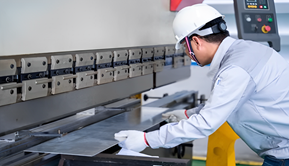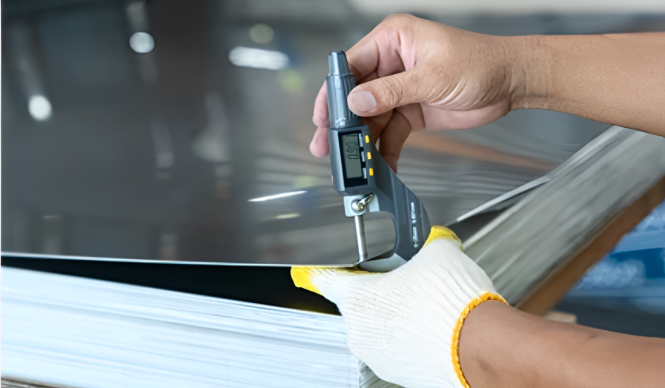Does Aluminum Rust? An Ultimate Guide
The applicability of the aluminum in todays age in various industries is undeniable. The key attributes which contribute to such popularity includes higher strength, lower weight, and weather resistance. You can find the aluminum in almost everything such as electronics, vehicles, construction equipments as well as consumer goods. Due to the widespread usage the question that rises among many aluminum users is “Does aluminum rust?”. The aim of this blog post is to guide you with aluminum behaviour to corrosion, composition, types of corrosion, and much more. Just stick to this guide to uncover the facts.

Table of Contents
ToggleDoes Aluminum Rust? – Understanding Key Points
To answer the question like “Does aluminum rust or corrode?”, you need to develop a clear understanding about the rusting or corrosion. In reality rusting falls under the corrosion. You can define rusting as a process involving reaction of iron with moisture as well as oxygen. It occurs when water or oxygen both present in the surrounding of the metal.
On the other hand the corrosion refers to the major class, it involves the deterioration of the metal through various checmial processes occuring on or in surroundings of the metal. Corrosion may results in due to the reduction, oxidation, or even other reactions.
Now let’s answer “Does Aluminum Rust Outside?”
The answer is no, aluminum does not rust in the manner as iron do. But yes the aluminum gets corroded. This is mainly due to the presence of various strong chemicals like acid rain, polluted or salted air, etc. The presence of the oxide film on the aluminum does not easily cause it to rust because of the atmospheric moisture and air.
Does Anodized Aluminum Rust?
You can define anodizing as a process that improves the layer of oxide film on the top of the aluminum. Anodizing makes this layer more thick as well as durable. This process prevent the aluminum from rusting as well as corrosion.
Does Cast Aluminum Rust?
No in real the cast aluminum resist rusting. But depending on the environment in which it is operational, you can experience corrosion with time. But corrosion may occur only in the presence of harsh chemicals, acids, and corrosive reactions.
Understanding the Chemical Composition of Aluminum
Aluminum comprises of more than 10 elements including some trace elements. The more percentage of the aluminum only comes from the Al element. It makes more than 99 percent of aluminum. Other all elements including the copper, iron, silicon, magnesium, etc. are present in a fewer amounts. The following table will give you insights on the composition of the aluminum.
| Sr. No. | Element | Symbol | Percentage (by mass) |
| 1 | Aluminum | Al | 99.00% – 99.99% |
| 2 | Copper | Cu | 0.00% – 0.50% |
| 3 | Iron | Fe | 0.00% – 0.70% |
| 4 | Magnesium | Mg | 0.00% – 5.00% |
| 5 | Silicon | Si | 0.00% – 12.00% |
| 6 | Zinc | Zn | 0.00% – 7.00% |
| 7 | Manganese | Mn | 0.00% – 1.50% |
| 8 | Titanium | Ti | 0.00% – 1.50% |
| 9 | Chromium | Cr | 0.00% – 1.00% |
| 10 | Nickel | Ni | 0.00% – 1.00% |
The lower percentage of the iron in the aluminum is what makes aluminum rust resistance.
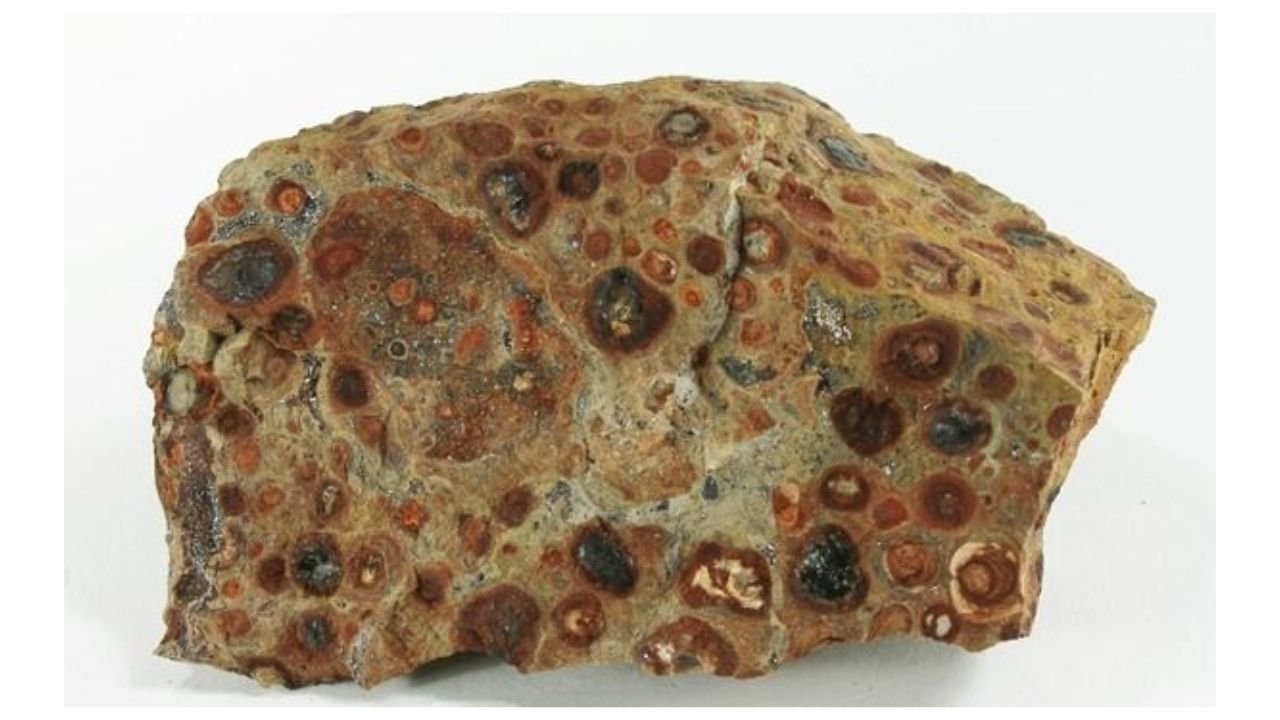
Types of Corrosion You Can Experience in Aluminum
You can witness following types of corrosion within the aluminum:
Pitting Corrosion
Pitting corrosion entails development of small localized pits or holes on the surface of aluminum. This type of corrosion is usually caused by chlorides or any other material that has corrosive characteristics. These pits can extend beyond the surface of the material and cause further issues such as deterioration in the structure of the material.
Galvanic Corrosion
This is an electrochemical process in which Aluminium is in electrical contact with a metal that is more noble than it is, for example Copper or Steel. The aluminum draws near to the anode and erodes while the iron stays near the cathode and does not corrode. This sort of corrosion increases the speed at which the aluminum is corroded by differential electrode potentials.
Crevice Corrosion
Undercutting corrosion normally occur in areas that are difficult to access and where moisture, chemicals, or salts accumulate. Such areas could be the joint, the seam, or beneath a gasket. It leads to localized corrosion, which is further enhanced due to low oxygen availability and high concentration of corrosive agents enhancing material degradation.
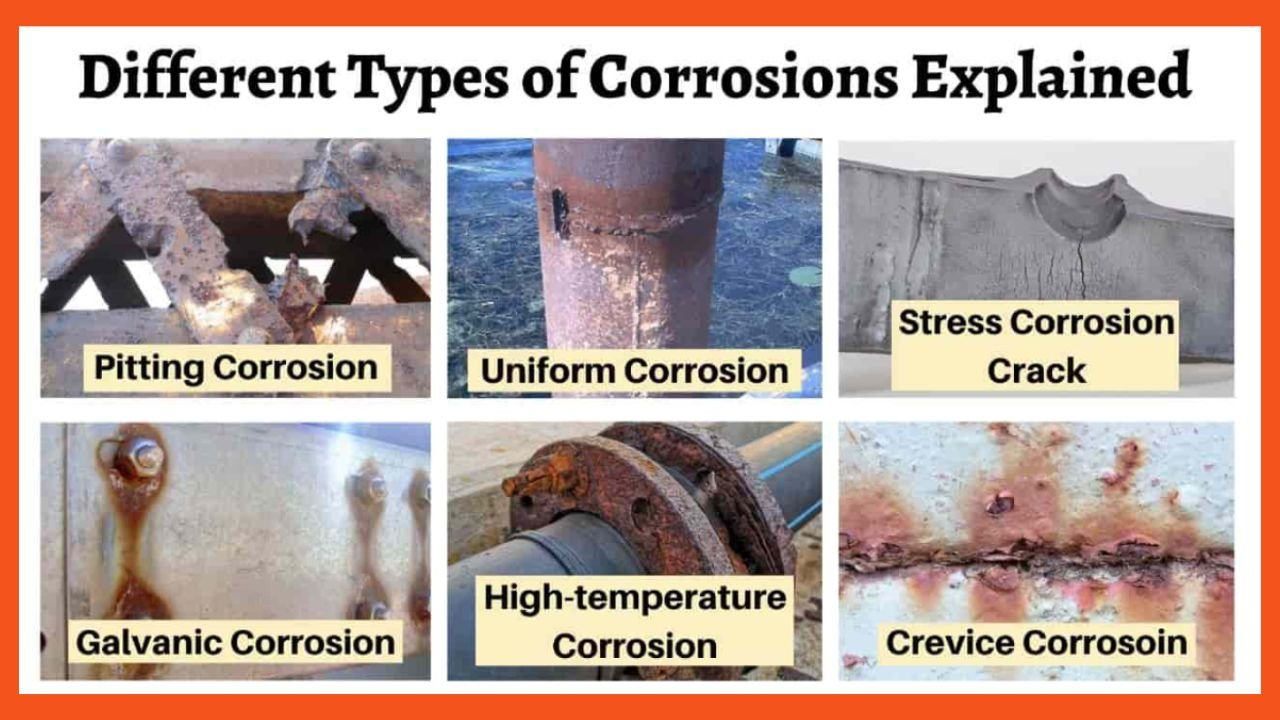
Intergranular Corrosion
Intergranular corrosion affects the boundaries of grains in aluminum alloys. They generally arise from contact with certain chemicals, or if a proper heat treatment process was not followed. This kind of corrosion acts on the grain boundaries of the material and may cause material failure and loss of structural integrity.
Stress Corrosion Cracking (SCC)
Stress corrosion cracking or SCC is defined as a process in which aluminum is stressed in tension and is in contact with a corrosive environment or a solution such as salt water. The presence of both stress and the given corrosive elements means that cracks may develop and progress, to a severe level of structure failure eventually.
Special Scenarios of Aluminum Rusting
The following section will throw light on the information about rusting of the aluminum is special scenarios. The key scenarios include the salt air, salt water, fresh water, cold weather, etc. Uncover useful insights on the each point in the table below:
| Sr. No. | Special Scenarios of Aluminum Rusting | Answer | Reason |
| 1 | Does Aluminum Rust in Water? | No | Aluminum forms a thin, protective oxide layer (Al2O3) that prevents further corrosion. |
| 2 | Does Aluminum Rust in Saltwater? | No | The oxide layer is generally resistant to saltwater corrosion, but prolonged exposure or specific conditions can weaken it. |
| 3 | Does Aluminum Rust in Salt Air? | Yes | The high salt content in the air can accelerate the breakdown of the oxide layer, leading to corrosion. |
| 4 | Does Aluminum Rust in Cold Weather? | No | Cold weather does not directly cause aluminum to rust. However, extreme cold can affect the rate of corrosion. |
| 5 | Does Aluminum Rust in Concrete? | No | Aluminum is generally compatible with concrete and does not rust in it. However, if the concrete is acidic or contains chloride ions, corrosion can occur. |
| 6 | Does Aluminum Rust in Copper Chloride? | Yes | Copper chloride can react with aluminum, causing corrosion. The reaction produces aluminum chloride and copper. |
Different Types of Aluminum and Their Rusting Behaviour
Uncover useful information on the different types of aluminum and their behaviour to the rusting phenomenon:
Does 6061 Aluminum Rust?
6061 aluminum, as mentioned earlier, has good corrosion resistance, particularly when used in outdoor applications. It does not rust like iron or steel but is vulnerable to surface rusting under conditions like salt water or acidic solutions. These effects can however be reduced by frequent maintenance.
Does 6061 T6 Aluminum Rust?
While 6061 aluminum is not tempered, 6061 T6 aluminum has higher levels of rust protection than the non-heat-treated aluminum. Often employed in aerospace and automotive industries, this grade offers high durability and low levels of corrosion but could be vulnerable to localized corrosion in ultra-corrosive settings.
Does 5052 Aluminum Rust?
The 5052 aluminum possesses great abilities in the corrosion resistance, especially the salt water corrosion, so it is widely used in marine applications. This particular grade has a relatively high magnesium content compared to other aluminum alloys and as a result, the material is less prone to corrosion especially in marine environments.
Does 7075 Aluminum Rust?
7075 aluminum has high strength and is a popular material but is more vulnerable to corrosion crutches in particular in the salt water environment than are other aluminum alloys. To further strengthen it, it can be anodized or coated to create an outer layer that reduces corrosion and increases the alloy’s useful life.
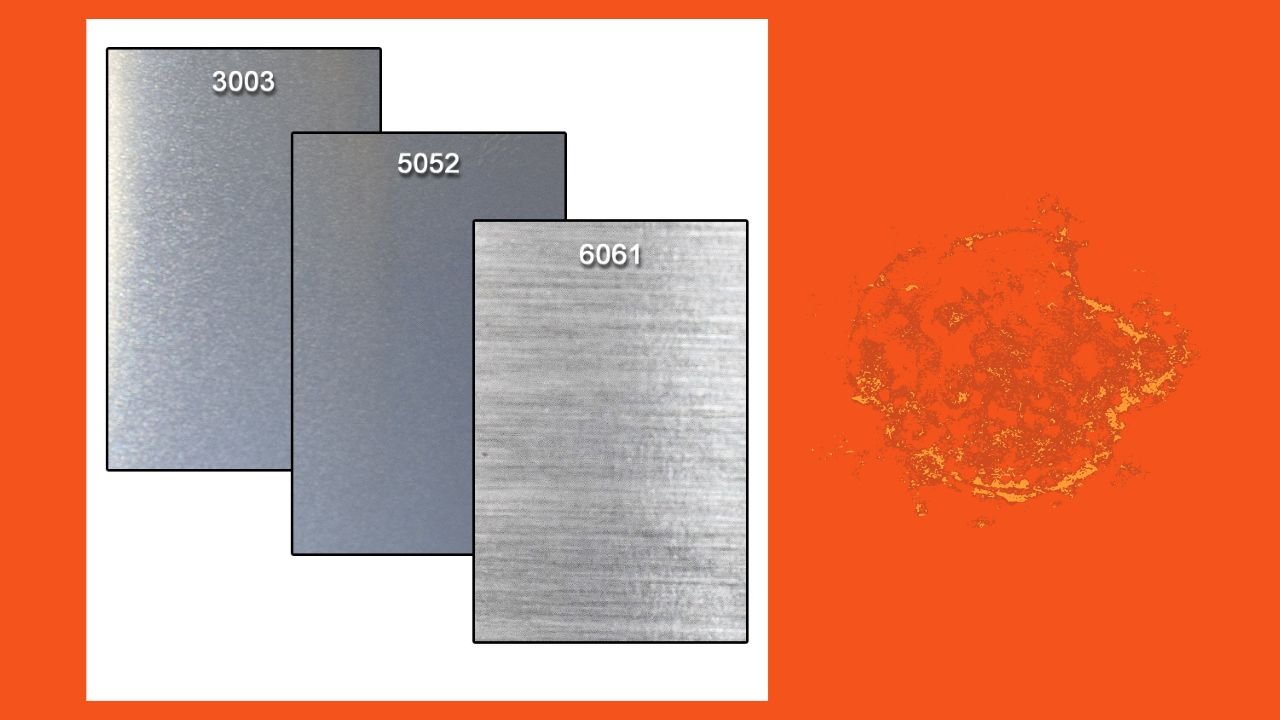
Does 2024 Aluminum Rust?
2024 aluminum is another strong alloy used in air crafts and in military equipment. It has lower corrosion resistance than many other aluminium grades though. 2024 aluminum does not require additional protective measures like coats or anodizing; however, it is more sensitive to corrosion when compared to 6061 aluminum, especially in environments with high levels of humidity or salinity.
Does 3003 Aluminum Rust?
Alloy 3003 is corrosion resistant and has excellent corrosion behavior even in situations that are exposed to outside elements and water. Since it has a natural resistance capability, it is suitable for different uses especially those exposed to wet environments. This resistance aids in keeping up its surface and support for a long time, which in turn minimizes the use of other layers of protection.
| Sr. No. | Aluminum Alloy | Main Composition Elements | Rusting | Applications |
| 1 | 6061 | Al-Si-Mg-Cu | No, but can corrode | Aerospace, construction, marine |
| 2 | 6061 T6 | Heat-treated 6061 | No, but can corrode | Aerospace, automotive, machinery |
| 3 | 5052 | Al-Mg | No, excellent corrosion resistance | Marine, construction, transportation |
| 4 | 7075 | Al-Zn-Cu-Mg | No, but can corrode | Aerospace, automotive, machinery |
| 5 | 2024 | Al-Cu-Mg-Mn | No, but can corrode | Aerospace, automotive, machinery |
| 6 | 3003 | Al-Mn | No, excellent corrosion resistance | Construction, consumer goods, food processing |
Aluminum in Consumer Products
Does Aluminum Outdoor Furniture Rust?
Aluminum furniture is suitable for the outdoors and is used in making patio sets because it is non-rusting. However, if it is cleaned regularly it holds its finish well and will not pit in saline or acidic environment.
Does Aluminum Apple Watch Rust?
Apple Watches are made of aluminum, and the case of the watch does not rust. The black aluminum material is anodized to provide added safeguard against abrasion and rusting, thus a quality product is ensured.
Does Aluminum Bakeware Rust?
Aluminum bakeware has a non-corrosive nature, which makes it ideal for baking. But otherwise, it’ll suffice to just stay away from hyperacidic or genuinely salty food products, which ought to be a source of some minor rust.
Does Aluminum Bike Frame Rust?
It does not rust unlike steel commonly used in producing bike frames for which many cyclists prefer aluminum. Nevertheless, frames that are exposed to salt or water may become a victim of pitting corrosion if not well maintained.
Does Aluminum Car Rust?
Cars that are made from aluminum found, especially in some models of Ford F150 cannot rust. This makes aluminum as an ideal material in the automobile manufacturing industry.
Aluminum and Cleaning Methods
Does Vinegar Remove Rust from Aluminum?
Vinegar cannot eliminate rust from aluminium because aluminium does not rust. However, vinegar is applicable when one wants to remove a thin layer of general corrosion or oxidation on the aluminum items. The acetic acid in vinegar dissolves the layers of oxidation on aluminum and can be wiped off more easily to rejuvenate the aluminum.
How Does Aluminum Foil Clean Rust?
Aluminum foil can be used as an abrasive in removing rust from the surface of steel materials. It performs the role of a mild abrasive, especially when rubbed against rust stained surfaces as it will help to remove the rust. It does not rust itself which is ideal when removing rust since the process will not lead to formation of more rust
Does Aluminum Rust in Specific Environments?
Get familiar with the answers on specific questions relating to the aluminum products operating in specific environments in the table below:
| Sr. No. | Product | Rusting Answer | Reason |
| 1 | Does Aluminum Fence Rust? | No | Aluminum forms a protective oxide layer that prevents rust. |
| 2 | Does Aluminum Screen Rust? | No | Similar to fences, aluminum screens have a protective oxide layer. |
| 3 | Does Aluminum Sheet Metal Rust? | No | The oxide layer on aluminum is highly resistant to corrosion. |
| 4 | Does Aluminum Wire Rust? | No | The same principle applies to aluminum wire; the oxide layer protects it. |
| 5 | Does Bare Aluminum Rust? | No | Even without coatings, aluminum’s natural oxide layer prevents rust. |
| 6 | Does Brushed Aluminum Rust? | No | The brushing process doesn’t affect the oxide layer’s protective properties. |
Aluminum vs. Other Metals
Does Aluminum or Stainless Steel Rust?
No, the stainless steel as well as aluminum does not rust. Although the aluminum and stainless steel are prone to corrosion in harsh weather conditions.
Does Aluminum or Steel Rust?
Akuminum does not rust but yes the steel does depending on the duration for which it exposed to the air as well as moisture.
Does Aluminum Oxide Rust?
The aluminum oxide is a thin film which exist over the aluminum surface. It plays a key role in preventing rust as well as corrosion to the underlying metal.
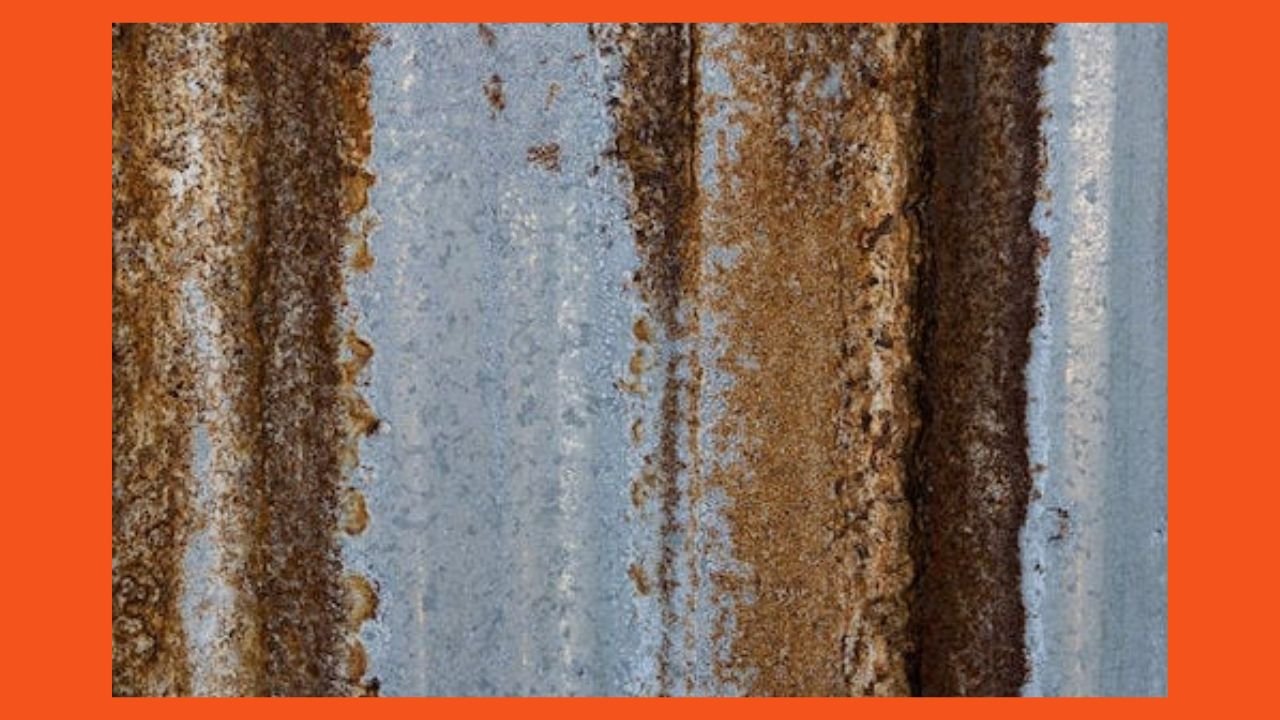
Aluminum Finishes and Rust
Does Painted Aluminum Rust?
The paint therefore forms another layer of protection against corrosion. You need to keep it up periodically with maintenance measures for even longer component life.
Does Polished Aluminum Rust?
An advantage of the smooth finish or polish is that it can reduce the effects of corrosion on aluminum; however, constant maintenance is necessary to avoid oxidation.
Does Powder Coated Aluminum Rust?
No not so easily, it resist the rusting phenomenon more accurately as well as precisely.
Does Pure Aluminum Rust?
It does develop a natural oxide layer for protection, however, it is prone to corrosion in rather severe conditions.
Special Aluminum Applications and Rust
Does Aircraft Aluminum Rust?
Both aircraft aluminum (6061 or 7075) are not open to rusting/oxidization, bbut they may corrode. Therefore a layer of oxides coating or anodizing is recommneded.
Does Aluminum Bronze Rust?
An alloy featuring the copper and aluminum content. It does not rust but may become tarnish over time.
Does Aluminum Cans Rust?
No, this is why you can pack variety of liquids in these cans.
Does Aluminum F150 Rust?
Apparently, the body of the Ford F150 is made from aluminum, and there is an advantages for this; it does not rust. This is a big plus for those who reside in areas where there is heavy snow and usage of road salt.
Other Queries About Aluminum and Rust
The following table shows the facts on the aluminum rust common queries:
| Sr. No. | Product | Rusting Answer | Reason |
| 1 | Does Aluminum Pot Rust? | No | Aluminum forms a protective oxide layer that prevents rust. However, the layer can be damaged by harsh chemicals or abrasive cleaning. |
| 2 | Does Aluminum Railing Rust? | No | Similar to pots, aluminum railings benefit from the protective oxide layer. However, exposure to extreme weather conditions or salt can accelerate corrosion. |
| 3 | Does Billet Aluminum Rust? | No | Billet aluminum, being a solid form of aluminum, is naturally resistant to rust due to the oxide layer. |
| 4 | Does Extruded Aluminum Rust? | No | Extruded aluminum also has a protective oxide layer, making it resistant to rust. |
| 5 | Does Galvanized Aluminum Rust? | No | Galvanized aluminum is coated with zinc, which provides an additional protective layer against rust. |
| 6 | Does Hard Anodized Aluminum Rust? | No | Hard anodizing creates a thicker, more durable oxide layer, further enhancing rust resistance. |
| 7 | Does Heavy Duty Aluminum Diamond Tread Plate Rust? | No | This type of aluminum, despite its heavy-duty nature, still benefits from the protective oxide layer, preventing rust. |
Conclusion
Aluminum has some distinct properties and benefits; specifically, this material does not rust and corrodes easily and is easily applicable to different branches of industry. Transportation, consumer products, construction industries will always prefer such materials because of this property that makes them less prone to degradation. With proper care, one can anodize it or powder coat it, making the life span of the fork even longer. The distinction between rusting and corrosion in aluminum enables the appropriate selection of aluminum in any projects.
Read more:


